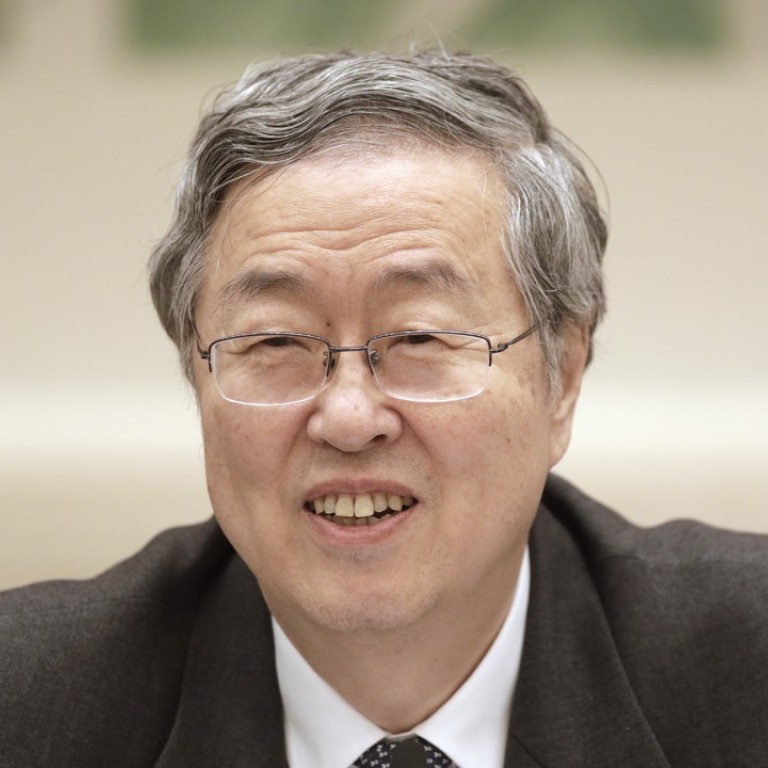
China’s central bank chief says too much optimism could cause a ‘Minsky moment’
High levels of local government borrowing, rising household debt levels are causes for concern, Zhou Xiaochuan says
China must be wary of the financial risks caused by excessive optimism that could lead to a “Minsky moment”, the head of its central bank warned on Thursday.
Named after US economist Hyman Minsky, the term refers to a sudden collapse of asset prices after long periods of prosperity or growth.
“If there’s excessive optimism in the boom period, it will lead to an accumulation of conflicts [in the economy], which may end up with a so-called Minsky moment,” Zhou Xiaochuan, governor of the People’s Bank of China, said during a panel discussion on the sidelines of the ongoing party congress in Beijing.
“That is the problem we must fend off,” he said.
While Zhou did not forecast a crisis in the world’s second largest economy, he said there were concerns with regard to local government borrowing and rising household debt.
“It does not mean we must deleverage in the household sector right away, but we should pay attention to [asset] quality and ensure any increases in debt are healthy and stable,” he said.
The rapid growth of China’s debt over the past decade is regarded as a major threat to its economic prospects. President Xi Jinping has pledged to reduce debt levels, especially in the corporate sector, but the addiction to borrowing for growth has shown little sign of waning.
Beijing has, however, repeatedly assured the rest of the world that it has the necessary means and resolve to deal with its debt issues.
Guo Shuqing, chairman of the China Banking Regulatory Commission and one of the favourites to succeed Zhou as central bank chief, said at the same discussion that China’s regulation of the banking sector would only be strengthened.
“The overall trend means financial supervision will be tighter and tighter. Regulatory agencies will strictly enforce the regulations,” he said.
“Risks can be addressed, conflicts can be solved, but it takes effort from all parties. I hope everyone can understand.”
Guo also promised to give foreign investors better access to China’s financial markets, through measures such as raising the cap on how much equity they can hold in domestic banks.
Also, the market share of foreign banks in China had halved to 1.2 per cent, which was unhelpful for the banking sector, he said, without elaborating.
On the subject of the yuan, Zhou dismissed speculation that the government was about to widen the currency’s trading band against the US dollar. The central bank currently caps the yuan’s daily movement against the US currency at 2 per cent in either direction.
“The floating range of the yuan’s exchange rate is not a very important issue,” he said.
The current arrangement seldom restricted the function of the exchange rate in determining market supply and demand, he said.
“Widening the range is a signal to indicate further reform, but it is not our priority right now,” he said, adding that the process for the yuan becoming a fully free currency would be lengthy, he said.
“We have not completed the process, and we will continue to push forward. But there is no particular time frame to do so,” he said.
“The National Financial Conference in July sent a clear signal on the further opening up of the financial market.”


